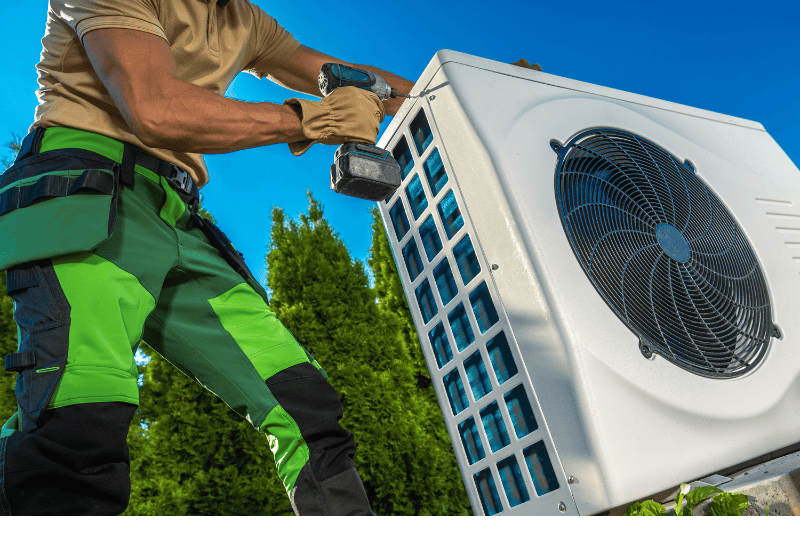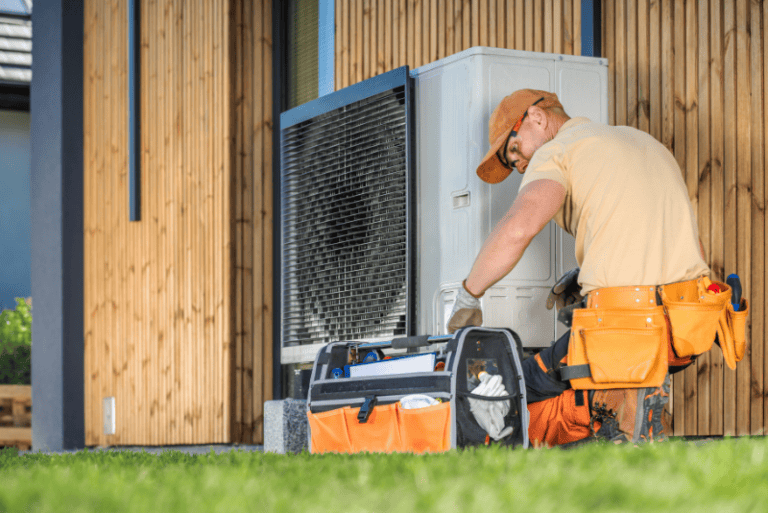When it comes to maintaining comfort in your home, your heating, ventilation, and air conditioning (HVAC) system plays a crucial role. Whether you need repairs, routine maintenance, or a full system installation, knowing how to choose an HVAC contractor can save you time, money, and frustration. With so many options available, finding the right professional to handle your HVAC needs can feel overwhelming.
But don’t worry, this guide will walk you through everything you need to consider before hiring an HVAC contractor, ensuring you make a confident and informed decision.

Why Choosing the Right HVAC Contractor Matters
Your HVAC system is one of the most important investments in your home. A well-functioning system keeps your living space comfortable year-round and can significantly impact your energy bills. On the other hand, a poor installation or shoddy repair job can lead to costly breakdowns, reduced efficiency, and even safety hazards. So, knowing how to choose an HVAC contractor who is trustworthy, skilled, and reliable is essential to protect your home and your wallet.
Step 1: Verify Licensing, Certification, and Insurance
Before you even consider inviting a contractor into your home, make sure they have the proper credentials. Licensing requirements for HVAC contractors vary by state and locality, but a legitimate contractor should have no problem providing proof. Licensing ensures the contractor meets local standards and regulations.
Additionally, insurance is crucial. Contractors should carry both liability insurance and workers’ compensation to protect themselves from financial responsibility in case of accidents or damages during the job. Don’t hesitate to ask for copies of their insurance certificates.
Look for industry certifications as well. One of the most recognized credentials is NATE Certification (North American Technician Excellence), which shows the technician has passed rigorous testing and has expertise in modern HVAC technology.
Step 2: Understand Your Current HVAC System
Before reaching out to contractors, gather some key details about your existing HVAC equipment. Knowing your system’s:
- Brand and model number
- Serial number
- Age
- Service history
We will help contractors provide accurate assessments and recommendations. Taking a photo of your equipment’s identification tag can be very helpful.
Also, note any issues you’re experiencing, such as uneven heating or cooling in certain rooms or strange noises. This information allows the contractor to diagnose problems more quickly and suggest the right solutions.
Step 3: Ask for Referrals and Check Reviews
One of the best ways to find a reputable HVAC contractor is through word of mouth. Ask friends, family members, neighbors, or coworkers if they can recommend someone they’ve had a positive experience with. Personal referrals are often the most reliable source.
In addition to referrals, check online reviews on platforms like Google, Yelp, or Angie’s List. While no company will have a perfect rating, look for contractors with a consistently high average score and read recent reviews to get a sense of their professionalism, punctuality, and quality of work.
Be cautious of contractors with mostly negative reviews or patterns of complaints about pricing transparency or missed appointments.
Step 4: Request Detailed Estimates and Compare Quotes
Once you have a shortlist of potential contractors, request written estimates for your project. A detailed quote should include:
- The cost of equipment and parts
- Labor charges
- Any additional fees (e.g., disposal of old equipment)
- Estimated timeline for completion
- Warranty information
Beware of bids that seem unusually low. While it’s tempting to choose the cheapest option, extremely low prices may indicate subpar materials, unlicensed work, or hidden fees that will surface later.
Compare not just the price but also the value offered, including energy-efficient equipment recommendations and the contractor’s responsiveness.
Step 5: Ensure an In-Home Evaluation is Conducted
A responsible HVAC contractor will always want to perform a thorough in-home evaluation before making recommendations or giving a final quote. This assessment includes:
- Inspecting your current system and ductwork
- Measuring your home’s square footage and insulation levels
- Checking window efficiency and air leaks
- Discussing your comfort preferences and budget
A proper evaluation allows the contractor to size your system correctly and recommend equipment tailored to your home’s needs. Oversized or undersized units can cause problems down the road, such as uneven temperatures or excessive energy consumption.
Step 6: Review the Contract Carefully Before Signing
Before any work begins, make sure you have a clear, written contract outlining every detail of the project. This should include the scope of work, pricing, timeline, equipment models, and warranty terms.
Don’t sign the contract until you fully understand all terms and feel comfortable with the agreement. If something is unclear, ask the contractor for clarification. Having everything documented protects you from misunderstandings or unexpected charges later on.
Step 7: Follow Up After Installation or Service
A professional HVAC contractor should walk you through the system once the work is done, explaining how to operate thermostats and maintain the equipment properly. Ask about regular maintenance schedules and what to watch for to keep your system running efficiently.
If you notice any issues soon after installation or service, don’t hesitate to contact the contractor for follow-up support. A reputable company will stand behind its work.
Bonus Tip: Look for Energy-Efficient Options and Rebates
Energy-efficient HVAC systems, such as those with ENERGY STAR certification, can save you money on utility bills and often qualify for rebates or discounts from utility companies or government programs.
Ask your contractor about energy-saving models and available incentives in your area. Choosing an efficient system not only reduces environmental impact but also enhances your home’s comfort.
Conclusion
Knowing how to choose an HVAC contractor doesn’t have to be complicated. By doing your homework, verifying credentials, gathering information about your system, checking reviews, and asking detailed questions, you’ll be able to find a contractor who delivers quality service at a fair price.
Taking these steps ensures your HVAC system will keep your home comfortable and efficient for years to come and that you won’t have to worry about unexpected breakdowns or poor workmanship.



